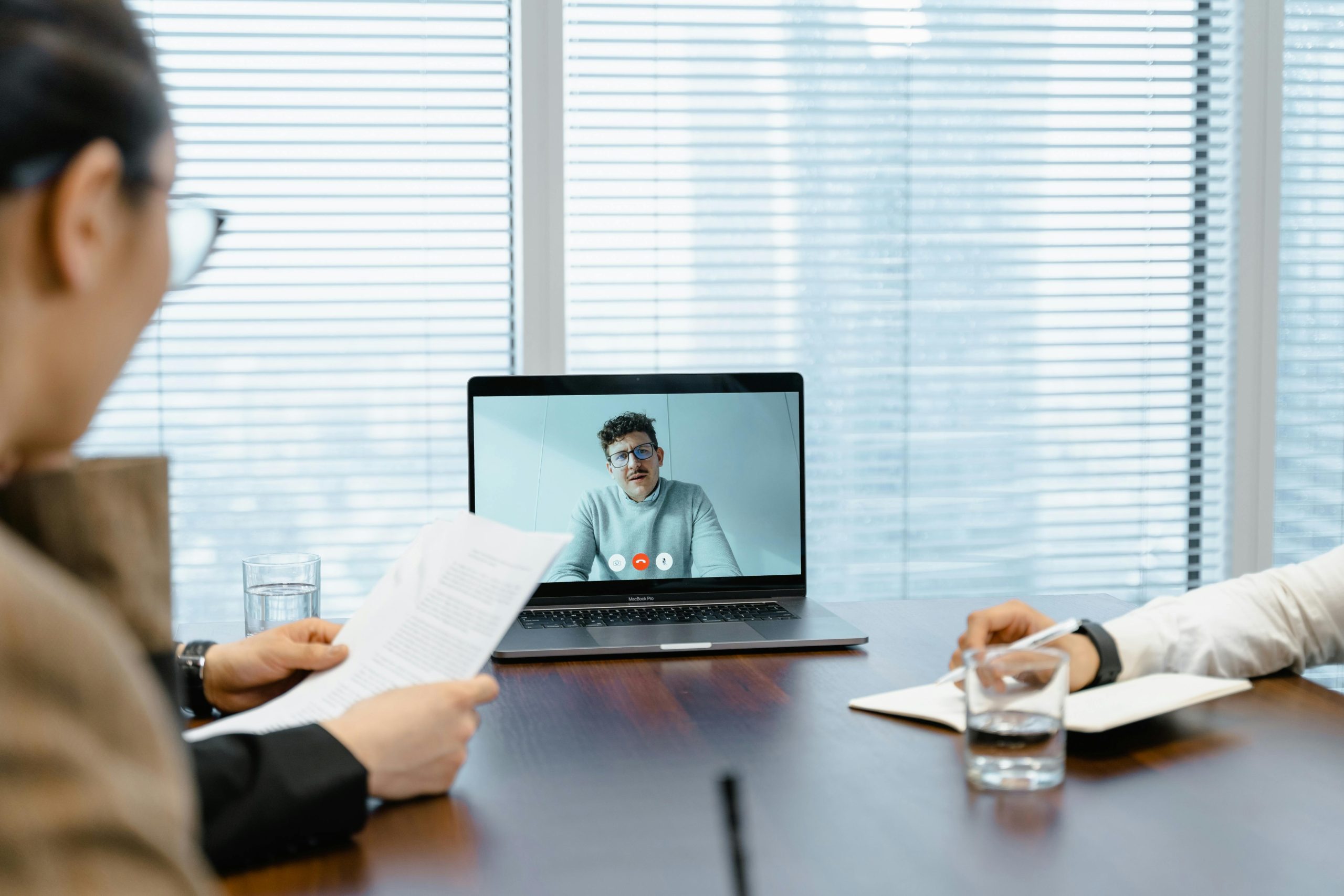
As an extra bonus, you can apply many of these tips, with some differences, to in-person interviews!
Be prepared to wait
As with in-person interviews, it is good practice to arrive early. We recommend 15 minutes for in-person interviews. For virtual interviews, keep it to five minutes. Many conferencing platforms have a virtual waiting room. Seeing you ready and prepared, even if they aren’t, reassures hiring personnel that you are taking the interview process seriously.
Make sure you are on time! There are no transportation issues to arriving on time for a virtual interview, so being late is inexcusable.
Position your interviewers’ faces close to the camera’s eye
Eye contact is crucial to interviews and to deepening your interviewers’ trust, and it is much harder to get right in a virtual interview. Try to position the screen containing your interviewers as close to the eye of your camera as possible. If you keep your camera elsewhere, it will look as if you have turned your face away, and might make you look distracted.
Mind your body language during the virtual interview
It can be easy to slip into old habits when sitting in your own space. You feel more comfortable in a familiar setting. Understandably, you may not be as self-aware as you would be in an interview room. Remember that body language can be seen on-camera, too, and that slouching and fidgeting affect your tone of voice.
Sit straight, maintain eye contact, and resist the temptation to move around too much. One way to correct your behaviour is to change your environment a little. Clear the space on either side of your computer, and move personal items out of sight.
Speak up during the virtual interview
If you can’t hear the other participants on the call, don’t be afraid to ask them to repeat their questions. If you followed our previous article you will have done an audio check prior to the interview, but you can’t control the signal from everyone else’s devices. It is better to ask them to repeat their question than assume what the question was.
What strategies can help manage nerves while on camera?
Virtual interviews can be uniquely stressful because of their unfamiliar technology. Some of this should have been mitigated in your preparations for the virtual interview. If you find yourself flailing during the interview, deep breathing can do wonders in helping to calm your nervous system. You can also hold a mental image of yourself doing well in your mind, to build confidence.
How to follow up after an interview
When we enter and exit an interview room, we tend to do so with a handshake. We don’t have this opportunity in a virtual room, so we must find other ways to present our best selves.
Remember: First impressions count. Last impressions can seal the deal.
Send a follow-up email thanking the interviewers for their time. Stand out from the competition with an extra line or two about a specific takeaway from the interview. You might choose something positive you discussed or a value of the company that particularly resonated with you.
Send this message the next day, and give your interviewers two weeks to respond before you consider sending a reminder.
*
Have you ever taken a remote interview? We help our candidates through the job-seeking process, helping them with interview prep and ensuring they find a perfect role. If you are looking for a new role and would like a supportive recruiter to help, get in touch. We are always looking for talented, engaged candidates for roles in London’s finest firms.